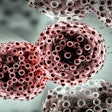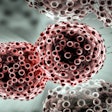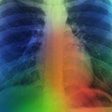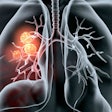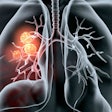
Foresight Diagnostics and researchers at Memorial Sloan Kettering Cancer Center will present a poster highlighting results from a recent study at the upcoming annual meeting of the American Association for Cancer Research (AACR), to be held April 14-19 in Orlando, FL.
The poster, titled "Ultrasensitive ctDNA minimal residual disease monitoring in early NSCLC with PhasED-Seq," provides results of a study evaluating the use of the Foresight Solid Tumor Recurrence Test.
The test used the firm's phased variant enrichment and detection by sequencing (PhasED-Seq) technology to evaluate patients with non-small cell lung cancer (NSCLC) solid tumors.
In the study, the Foresight Solid Tumor Recurrence test achieved an LOD95 of less than one part per million in the majority of plasma samples analyzed, and was almost twice as sensitive as a first-generation ctDNA MRD approach for MRD detection. The investigators evaluated first blood samples collected after completion of therapy from patients who later had recurrence of their tumors.
While PhasED-Seq-based MRD monitoring for lymphomas has been validated in previous studies, this is the largest study to date in which its use for solid tumors has been examined, according to the researchers. The results showing superior sensitivity are particularly significant, as greater sensitivity leads to fewer false-negative results, they added.
"This study provides some of the first evidence that PhasED-Seq's superior analytical sensitivity for MRD detection could translate into clinical benefit for patients with lung cancer," Dr. James M. Isbell, co-director of the thoracic liquid biopsy program at Memorial Sloan Kettering Cancer Center and the lead investigator for the study, said in a statement.








